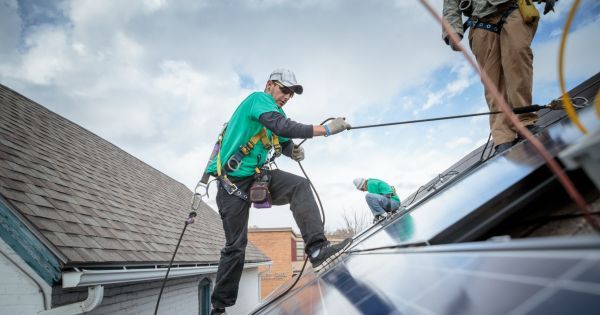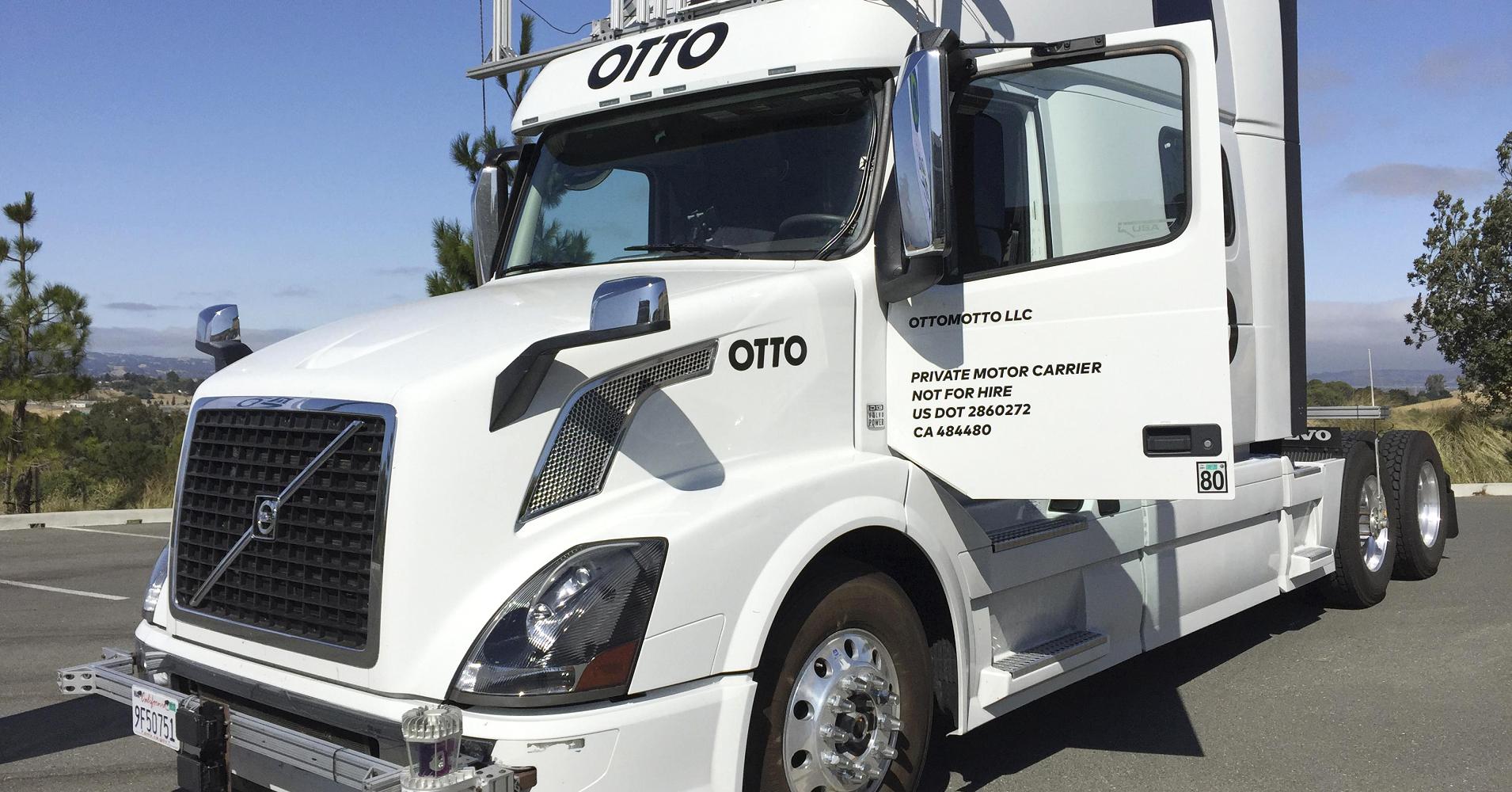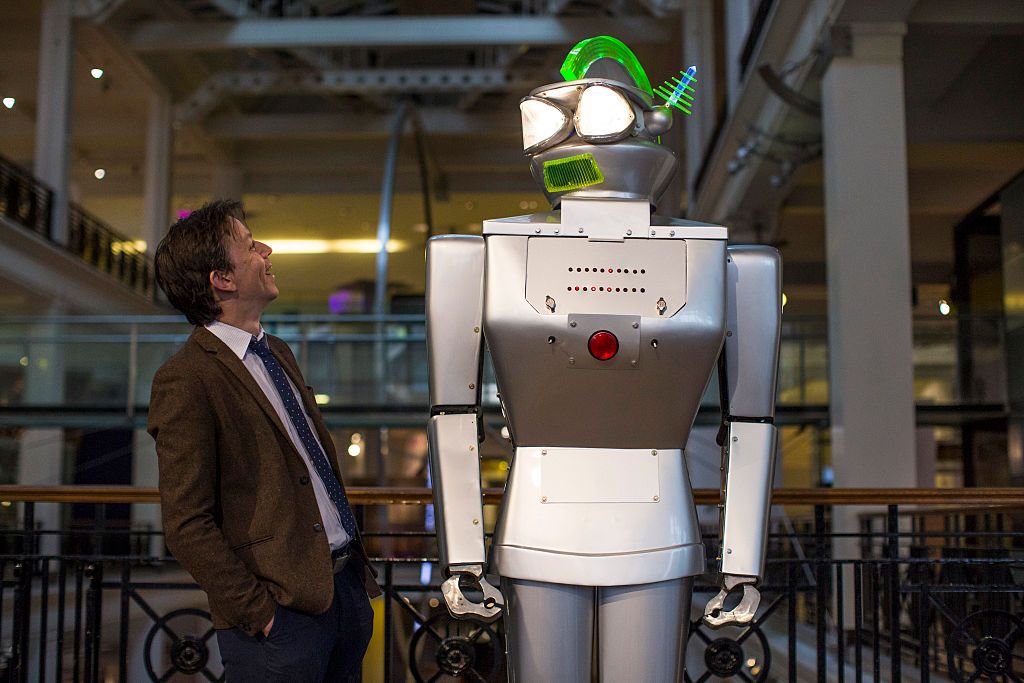These are 5 jobs that are already using holograms everyday.
Category: employment – Page 85

400 Burger Per Hour Robot Will Put Teenagers Out Of Work
Just a quick heads up, high school students. You might want to save your job application efforts for retail gigs, because the fast food space is about to be invaded by robots.
We already showed you an autonomous grillmaster that can monitor and flip an entire grill full of patties. Today’s bot is even more versatile. Not only can it cook the patty, but it can also dice up fresh toppings like tomatoes, pickles, and onions… and it can even deftly stack everything on a toasted bun.
This autonomous marvel was designed and built by Momentum Machines, who just wrapped up a successful funding round to the tune of $18 million. It’s pretty clear why they attracted so much cash.
10 Jobs That Didn’t Exist 10 Years Ago
The jobs invented in the last decade.

Zoltan Istvan: The Economy Of The Future Will Be Powered By Neural Lace
A write-up on about neural lace and the future economy: https://altleft.host/zoltan-istvan-the-economy-of-the-future…ural-lace/ #transhumanism
Zoltan Istvan, a leading Transhuman, shows us that the economic system of Technocracy needs Transhuman citizens to make it work. This is not surprising because Transhumanism and Technocracy are two sides of the same coin. ⁃ TN Editor.
The battle for the “soul” of the global economy is underway. The next few decades will likely decide whether capitalism survives or is replaced with a techno-fuelled quasi-socialism where robots do most of the jobs while humans live off government support, likely a designated guaranteed or basic income.
Many experts believe wide-scale automation is inevitable. Even the world’s largest hedge fund, Bridgewater Associates, recently announced it’s building an AI to replace its managers, many of whom are highly educated and previously thought invulnerable to automation. Robots, it seems, will manage everything. Or will they?
A next-generation technology, likely to arrive in five to 10 years, is being credited as the saviour of capitalism. Known today as neural prosthetics, or neural lace, it’s essentially tech that reads your brainwaves. This tech promises to connect our brains to the cloud and AI to link us with machines using thought alone.

The Solar Industry Is Creating Jobs 17 Times Faster Than the Rest of the U.S. Economy
Jobs in the solar field in the United States grew at a rate 17 times faster than the overall economy. This was part of a larger trend towards jobs in renewable energy and away from more dangerous, less sustainable jobs in fossil fuels.
A new report released by the International Renewable Energy Agency (IRENA) reveals that solar jobs in the U.S. (and other nations) are expanding quickly. As of November 2016, the American solar industry employed 260,077 workers. This is an increase of 24.5% from 2015, with a growth rate that is 17 times faster than the United States economy as a whole.

The meaning of life in a world without work
Most jobs that exist today might disappear within decades. As artificial intelligence outperforms humans in more and more tasks, it will replace humans in more and more jobs. Many new professions are likely to appear: virtual-world designers, for example. But such professions will probably require more creativity and flexibility, and it is unclear whether 40-year-old unemployed taxi drivers or insurance agents will be able to reinvent themselves as virtual-world designers (try to imagine a virtual world created by an insurance agent!). And even if the ex-insurance agent somehow makes the transition into a virtual-world designer, the pace of progress is such that within another decade he might have to reinvent himself yet again.
The crucial problem isn’t creating new jobs. The crucial problem is creating new jobs that humans perform better than algorithms. Consequently, by 2050 a new class of people might emerge – the useless class. People who are not just unemployed, but unemployable.
The same technology that renders humans useless might also make it feasible to feed and support the unemployable masses through some scheme of universal basic income. The real problem will then be to keep the masses occupied and content. People must engage in purposeful activities, or they go crazy. So what will the useless class do all day?
Automation Could Lead to the World’s Smartest Society
The Opportunity of Automation
“Ideally, what should be said to every child, repeatedly, throughout his or her school life is something like this: ‘You are in the process of being indoctrinated. We have not yet evolved a system of education that is not a system of indoctrination. We are sorry, but it is the best we can do. What you are being taught here is an amalgam of current prejudice and the choices of this particular culture. The slightest look at history will show how impermanent these must be. You are being taught by people who have been able to accommodate themselves to a regime of thought laid down by their predecessors. It is a self-perpetuating system. Those of you who are more robust and individual than others will be encouraged to leave and find ways of educating yourself — educating your own judgements. Those that stay must remember, always, and all the time, that they are being moulded and patterned to fit into the narrow and particular needs of this particular society.” – Dori Lessing in The Golden Notebook.
Automation will make most jobs obsolete. Rather than mourn the loss of the 9 to 5, we should see this as an opportunity to liberate humanity from the need to work for somebody else to survive. Coupled with universal basic income, it should be seen as a chance for every individual in society to more fully realize their potential.

Self-driving cars could cost America’s professional drivers up to 25,000 jobs a month, Goldman Sachs says
The full impact of self-driving cars on society is several decades away — but when it hits, the job losses will be substantial for American truck drivers, according to a new report from Goldman Sachs.
When autonomous vehicle saturation peaks, U.S. drivers could see job losses at a rate of 25,000 a month, or 300,000 a year, according to a report from Goldman Sachs Economics Research.
Truck drivers, more so than bus or taxi drivers, will see the bulk of that job loss, according to the report. That makes sense, given today’s employment: In 2014, there were 4 million driver jobs in the U.S., 3.1 million of which were truck drivers, Goldman said. That represents 2 percent of total employment.
Uber’s new app for truckers could disrupt one of America’s core industries
Uber launched a new app on Thursday called Uber Freight, which matches trucking companies with loads to haul.
The formal launch of the app marks Uber’s long-anticipated move into the trucking industry — potentially disrupting one of the most popular professions in the U.S.
With 9.73 million workers, transportation and material moving is the fourth-largest employment group in the U.S., behind office staff, salespeople and food preparation workers, according to May 2016 data from the Bureau of Labor Statistics. Of transportation workers and movers, general freight trucking and specialized freight trucking are among the industries with the highest employment levels, the BLS said.
